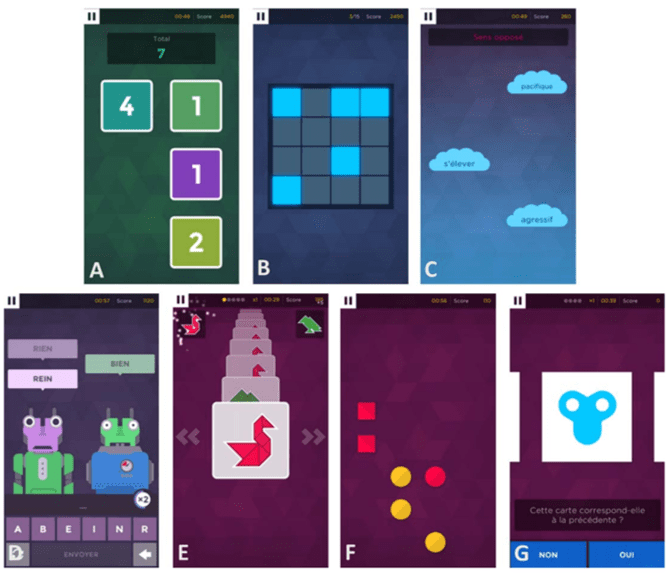Study: Brain training games could be used to assess cognitive abilities, replace the Mini-Mental State Exam (MMSE)

___
The Use of Mobile Games to Assess Cognitive Function of Elderly with and without Cognitive Impairment (Journal of Alzheimer’s Disease):
Abstract: In the past few years numerous mobile games have been developed to train the brain. There is a lack of information about the relation between the scores obtained in these games and the cognitive abilities of the patients. The aim of this study was to determine whether or not mobile games can be used to assess cognitive abilities of elderly. Twenty healthy young adults, 29 old patients with cognitive impairments (Mini-Mental State Exam (MMSE) [20- 24]) and 27-aged controls participated in this study. Scores obtained in 7 mobile games were correlated with MMSE and the Addenbrooke’s Cognitive Evaluation revised (ACE‑R). Statistically significant differences were found for all games between patients with cognitive impairments and the aged controls. Correlations between the average scores of the games and the MMSE and ACE‑R are significant (R = 0.72 [p < 0.001] and R = 0.81 [p < 0.001], respectively). Scores of cognitive mobile games could be used as an alternative to MMSE and ACE‑R to evaluate cognitive function of aged people with and without cognitive impairment at least when MMSE is higher than 20/30.
Study in context:
- What are cognitive abilities and how to boost them?
- Brainnovations Winner Jan Samzelius on why monitoring Typing Cadence may help detect early Parkinson’s and Alzheimer’s Disease
- Firms Race to Find New Ways to Scan Brain Health
- Solving the Brain Fitness Puzzle Is the Key to Self-Empowered Aging
- Five reasons the future of brain enhancement is digital, pervasive and (hopefully) bright
- Save the Date for 2018 SharpBrains Virtual Summit: Investing in Brain Health for All (December 4–6th)


